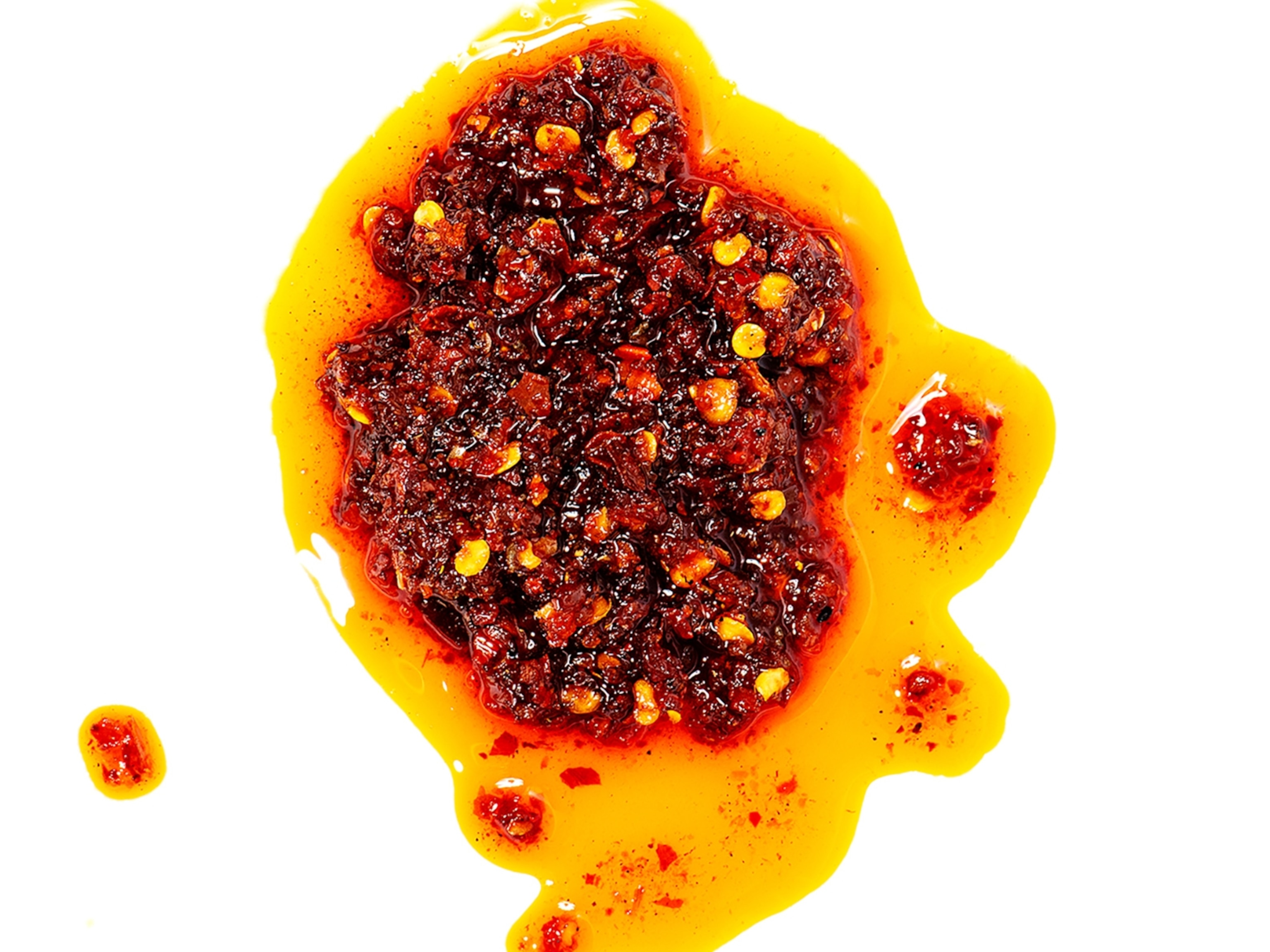
How Spice Tickles Your Lips
A compound in Szechuan pepper activates the same nerves as a light touch.
What's the difference between a spicy meal and being tickled? Not much, from your lips' perspective. A new study reports that Szechuan pepper activates the same nerves that respond to a light physical touch.
Researchers at the University College London Institute of Cognitive Neuroscience found that people experienced the same sensation when either Szechuan pepper—a spice used in many types of Asian cuisine—or a machine vibrating at a particular frequency was placed on their lips.
"The pepper is sending the same information to the brain as having a buzzer on your lips," the study's lead author, Nobuhiro Hagura, said in an email.
The study, published today in Proceedings of the Royal Society B with the wry headline "Food Vibrations," delves into the little-known field of psychophysics, which "describes the relation between physical reality and what we actually perceive," Hagura said.
"Our research shows just one interesting example of a case where we perceive something quite different than what is actually there," he said. "In many cases, the difference between perception and reality can be explained by understanding how the nervous system transmits information about the outside world to the brain."
Previous studies have shown that other spicy ingredients, such as chili peppers and mustard oils, activate the nerve fibers associated with pain and physical heat. And studies in animals indicated that the spicy chemical in Szechuan pepper—sanshool—acts on the nervous system's "light touch" fibers. So Hagura and his colleagues wanted to find out whether sanshool produces a conscious sensation of touch in humans.
For that, they needed some brave volunteers.
What a Sensation
Twenty-eight participants were asked to describe what they felt when a liquid solution of the ground pepper was applied to their lips. "Tingling" was the most common adjective, followed by "burning."
Next, they were asked to place their finger on a machine and compare various vibration speeds (measured in hertz, or cycles per second) to the tingling on their lips. People reported that these two sensations seemed to match each other when the machine was running at an average frequency of 50 Hz.
Armed with this knowledge, the researchers then placed the machine against the participants' lips and set it to vibrate at 50 Hz. Sure enough, people said it felt like they had Szechuan pepper on their lips. This suggested that the tingling sensation was linked to the light-touch nerve fibers, but the researchers wanted to be sure, said Hagura.
So for the final phase of the study, they placed the machine against the volunteers' lips for a longer period to desensitize the nerve fibers, making it feel like the vibrations had slowed down as the nerves eventually "tired out." Then they applied the pepper, predicting that if it was really activated by the same fibers—now made less sensitive—it would seem less spicy.
"That's exactly what we found," Hagura said. "Thus, the Szechuan pepper and physical touch sensation share the same pathway to the brain."
The research could lead to further studies about how the senses of touch and taste are connected, or even help scientists decipher the causes of some types of chronic pain, Hagura said.
"Tingling sensations are part of many chronic pain conditions, but remain poorly understood," he said. "We hope that [our work] could help to clarify the brain processes underlying these sensations."




